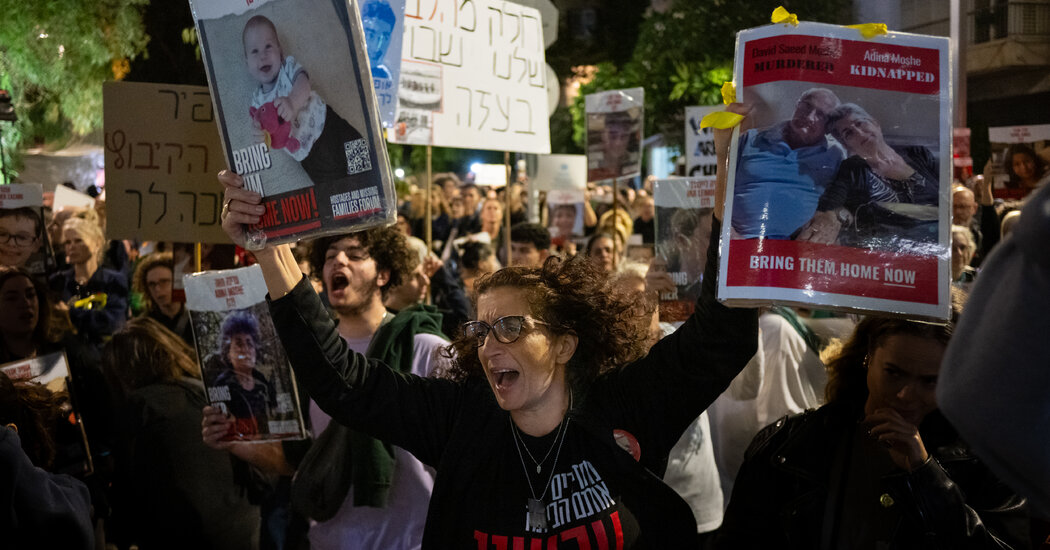Thursday Israeli authorities apprehended the director of Al-Shifa Hospital, Dr. Mohammad Abu Salmiya, for questioning due to the “evidence showing that the Al-Shifa Hospital, under his direct management, served as a Hamas command and control center.”
On both sides of the border, families of the captives waited with terrible trepidation, counting down the hours, hoping their loved ones might be among those released and that nothing at the last minute would go wrong.
The family of Avigail Idan, a small child whose parents were murdered in front of their children by Hamas militants at a kibbutz during the Oct. 7 assault, hoped that they would be able to celebrate her fourth birthday with her on Friday.
“I find myself barely breathing through the last 24 hours,” her aunt, Tal Idan, said after the announcement of the agreement. “Every hour that goes by feels like forever.”
White House officials, who spoke on the condition of anonymity to discuss the five weeks of sensitive negotiations that had led to the agreement, said on Tuesday that they expected the final list of 50 hostages to to include the release of three Americans: two women and the child, Avigail, whose name has also been spelled “Abigail” in the U.S. media and who is a dual Israeli and U.S. citizen. But it wasn’t clear if they would be released in the first group on Friday.
An undated photo (from left) of Avigail Idan, Roy Idan, Michael Idan, Amelia Idan, and Smadar Idan.
In the Israeli-occupied West Bank, where the Israeli military has been carrying out nightly raids, the siblings of Walaa Tanji, 26, began frantically preparing for her arrival when they heard she might be released from an Israeli jail. Having already had their hopes dampened the previous day, they nevertheless arranged to bring family members and rented plastic chairs to accommodate the crowds.
Israel detained Ms. Tanji over a year ago at her home in the Balata refugee camp on the outskirts of Nablus, along with two other women. Israel’s military accused the three of planning an attack on an Israeli checkpoint and said it had found firearms in a car they were using. Nagham Tanji, Walaa’s older sister, said that her sister was innocent and that she had yet to be charged or sentenced.
And in the Gaza Strip, Palestinians who have endured nearly seven weeks of intense airstrikes waited anxiously for the truce.
“I will live in safety, even if it’s temporary and short, without hearing explosions near or far,” Shadi Hijazi, a 23-year-old construction worker, said in a phone interview.
Qatar announced it would send a plane loaded with 41 tons of aid to the Gaza Strip, where an estimated 2.2 million Palestinians desperately need humanitarian aid and are running short of water, food and medicine. Several international humanitarian organizations said the four-day cease-fire window was too tight to address the dire situation.
The executive director of UNICEF, Catherine Russell, told the U.N. Security Council on Wednesday that the organization was “positioned to quickly scale up the delivery of desperately needed humanitarian aid in Gaza.” But, she said, “this is far from enough” to meet the growing needs of Palestinians.
